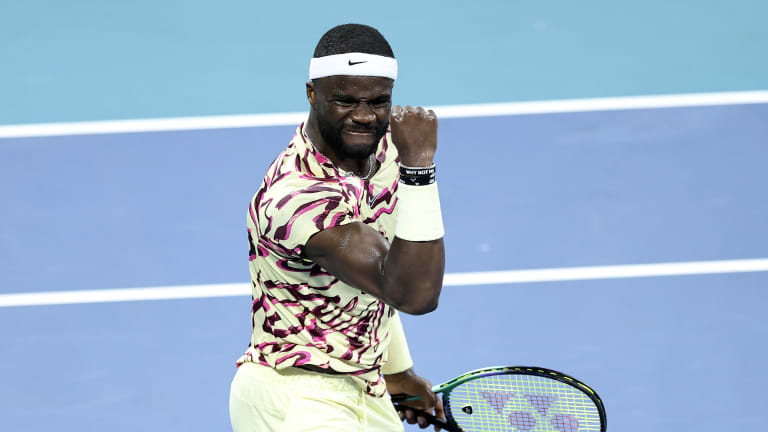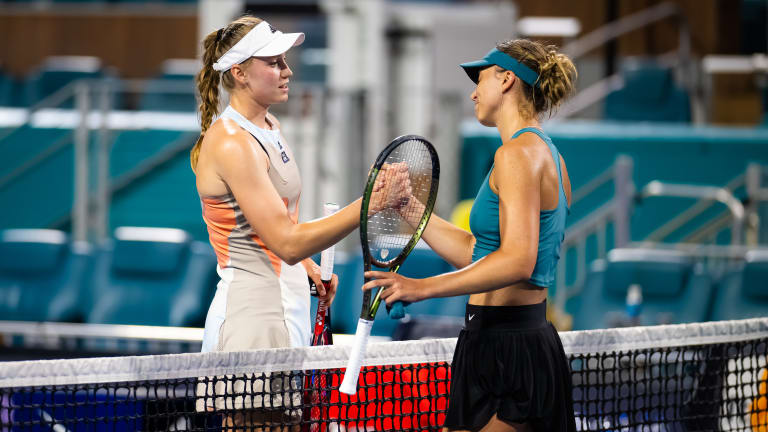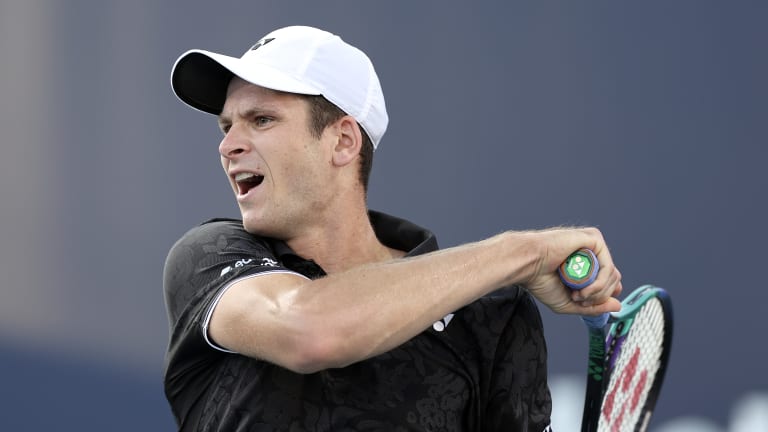Miami, USA
In Miami, Tiafoe, Rybakina & Hurkacz showed how the tiniest differences in confidence can determine so much
By Mar 26, 2023Miami, USA
Jannik Sinner tops Grigor Dimitrov for Miami Open title
By Mar 31, 2024Miami, USA
Danielle Collins won an emotional title, while Jannik Sinner won a logical one, at the Miami Open
By Mar 31, 2024Miami, USA
Danielle Collins wins Miami Open on her final try, topping Elena Rybakina in straight sets
By Mar 30, 2024Miami, USA
Danielle Collins defeats Elena Rybakina for Miami Open title, the biggest title of her career
By Mar 30, 2024Miami, USA
What will be stronger in Miami: Jannik Sinner's rise, or Grigor Dimitrov's renaissance?
By Mar 30, 2024Miami, USA
Jannik Sinner, Grigor Dimitrov advance to Miami Open final
By Mar 30, 2024Miami, USA
Who Will Win: Jannik Sinner or Grigor Dimitrov, 2024 Miami Open men's final
By Mar 30, 2024Miami, USA
Who Will Win: Danielle Collins or Elena Rybakina, 2024 Miami Open women's final
By Mar 29, 2024Miami, USA
2024 Miami Open women's final preview: Elena Rybakina vs. Danielle Collins is always 'neck and neck'
By Mar 29, 2024Miami, USA
In Miami, Tiafoe, Rybakina & Hurkacz showed how the tiniest differences in confidence can determine so much
The trio of eventual winners and their valiant opponents offered enough plot twists for a three-act play Saturday evening.
Published Mar 26, 2023
Advertising

Tiafoe came into Miami on the heels of his first Masters 1000 semifinal run at Indian Wells.
© Getty Images
Advertising

Rybakina has now taken out Badosa at both stops of this year's Sunshine Double.
© 2023 Robert Prange
Advertising

Hurkacz won from match point down for the second time this season (Marseille - saved 1 M.P. to edge Mikael Ymer).
© Getty Images